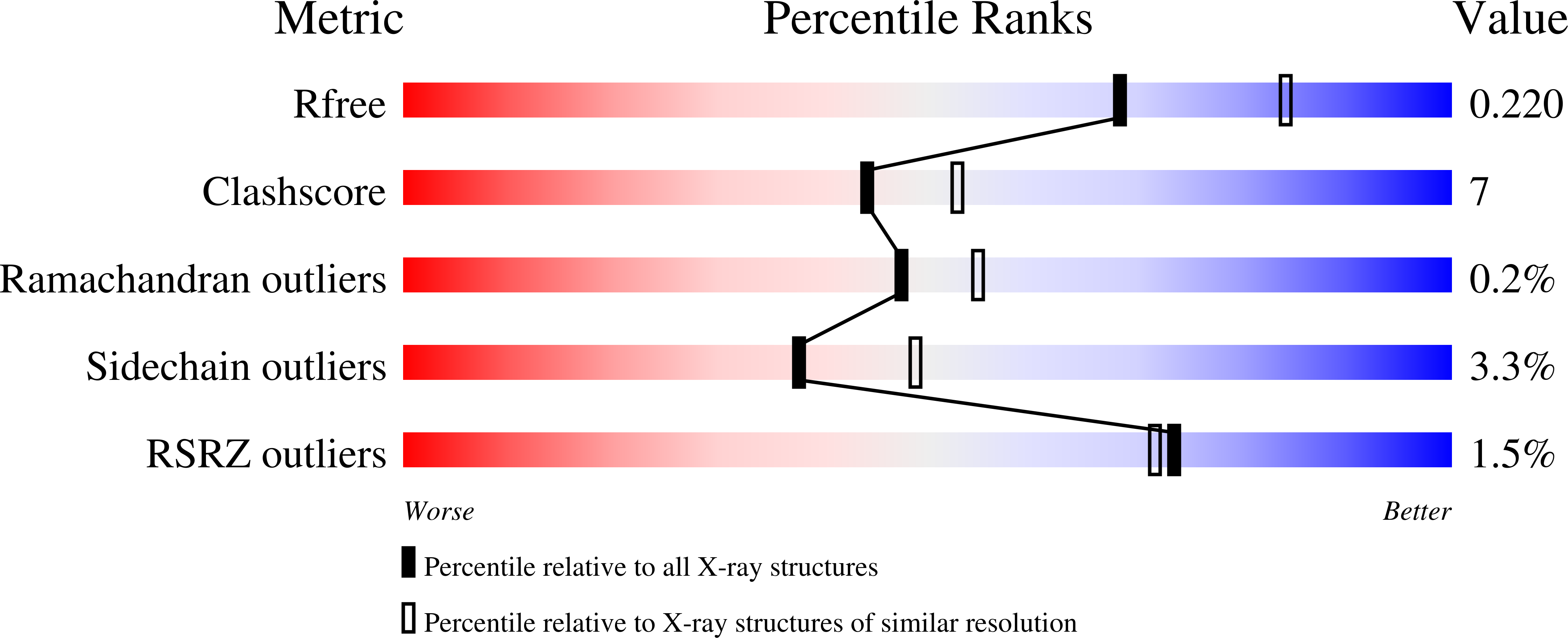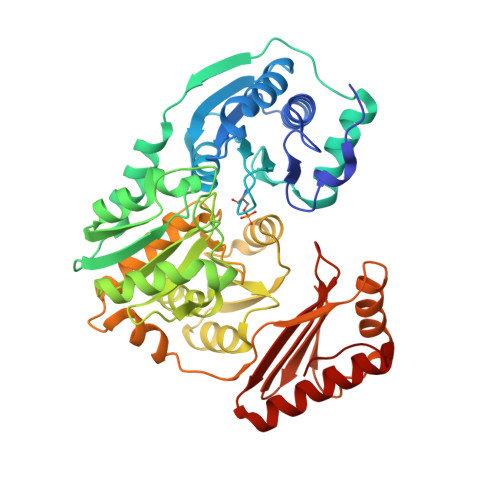Backbone flexibility, conformational change, and catalysis in a phosphohexomutase from Pseudomonas aeruginosa.
Schramm, A.M., Mehra-Chaudhary, R., Furdui, C.M., Beamer, L.J.(2008) Biochemistry 47: 9154-9162
- PubMed: 18690721
- DOI: https://doi.org/10.1021/bi8005219
- Primary Citation of Related Structures:
3BKQ, 3C04 - PubMed Abstract:
The enzyme phosphomannomutase/phosphoglucomutase (PMM/PGM) from the bacterium Pseudomonas aeruginosa is involved in the biosynthesis of several complex carbohydrates, including alginate, lipopolysaccharide, and rhamnolipid. Previous structural studies of this protein have shown that binding of substrates produces a rotation of the C-terminal domain, changing the active site from an open cleft in the apoenzyme into a deep, solvent inaccessible pocket where phosphoryl transfer takes place. We report herein site-directed mutagenesis, kinetic, and structural studies in examining the role of residues in the hinge between domains 3 and 4, as well as residues that participate in enzyme-substrate contacts and help form the multidomain "lid" of the active site. We find that the backbone flexibility of residues in the hinge region (e.g., mutation of proline to glycine/alanine) affects the efficiency of the reaction, decreasing k cat by approximately 10-fold and increasing K m by approximately 2-fold. Moreover, thermodynamic analyses show that these changes are due primarily to entropic effects, consistent with an increase in the flexibility of the polypeptide backbone leading to a decreased probability of forming a catalytically productive active site. These results for the hinge residues contrast with those for mutants in the active site of the enzyme, which have profound effects on enzyme kinetics (10 (2)-10 (3)-fold decrease in k cat/ K m) and also show substantial differences in their thermodynamic parameters relative to those of the wild-type (WT) enzyme. These studies support the concept that polypeptide flexibility in protein hinges may evolve to optimize and tune reaction rates.
Organizational Affiliation:
Department of Biochemistry, University of Missouri, Columbia, Missouri 65211, USA.
















